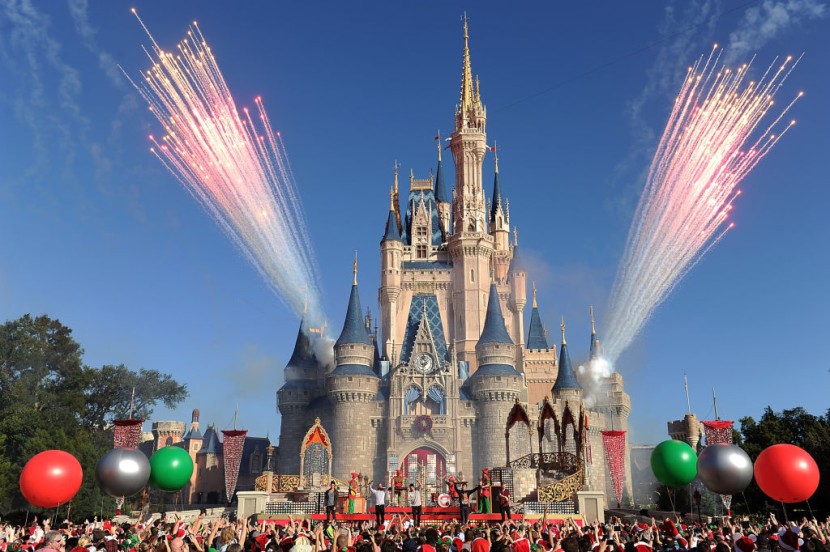
In a strategic move to boost its theme park and cruise business, Disney announced on Tuesday its plans to invest a staggering $60 billion over the next decade in its Disney Parks, Experiences, and Products segment.
This substantial investment is approximately twice the amount the entertainment conglomerate spent in the previous 10-year period, signaling Disney's unwavering commitment to expanding its foothold in the global leisure industry, as per New York Times.
Disney's $60 Billion Investment Blitz in Theme Parks and Cruises
This announcement coincided with Disney's investor summit, where the company laid out its vision for the future. The decision to channel significant resources into its theme parks and cruise lines is pivotal, as Disney faces revenue challenges in its streaming services, movie production, and television assets.
Disney Parks has consistently proven to be a formidable growth engine for the company, attracting millions of visitors annually. This massive investment aims to strengthen the existing parks and create new opportunities to engage Disney fans who have yet to experience the magic firsthand.
However, the theme park industry competition is fiercer than ever, with Universal Epic Universe scheduled to open in Orlando, Florida, in 2025. This addition will intensify the rivalry between Universal Orlando Resort and Walt Disney World, which currently boasts four theme parks.
Some industry experts have expressed concerns about Disney's seemingly vague 10-year plan, calling it underwhelming, especially in the face of such a significant competitor's imminent arrival. Alicia Stella, a prominent figure in the theme park community who runs the blog Orlando Park Stop, noted that Disney's announcement lacked the excitement and specificity that fans and investors had hoped for.
As a result, Disney's stock took a hit, with shares slumping approximately 3% during trading hours on Tuesday. Disney has outlined its primary focus as expanding and enhancing its theme parks in both the United States and international locations and its cruise lines.
The company mentioned having over 1,000 acres of land available for potential development, although specific plans should have been disclosed in the blog post released on Tuesday. Even in limited space, such as the original Disneyland resort in Anaheim, California, Disney has embarked on a multi-year project known as "Disneyland Forward."
The project aims to maximize existing square footage by adding new attractions, dining options, and shopping experiences. However, no specific plans have been set until an environmental impact report is completed.
Disney's unique selling proposition in the theme park business lies in its vast intellectual property portfolio. The company leverages its beloved characters and powerhouse brands like Avengers and Star Wars to generate interest in its parks and, conversely, uses the parks to deepen visitors' connection with these properties.
Looking ahead, Disney may also explore underutilized films and characters to enrich the theme park experience further. In addition to its theme parks, Disney's cruise business is a powerful ambassador for the brand" with global reach.
Disney had previously announced plans to expand its fleet of cruise ships, further strengthening its presence in this lucrative market, Reuters via MSN reported.
Disney Parks Division Shines Amidst Revenue Challenges
While Disney's streaming services and other divisions have faced revenue challenges, the parks division has consistently delivered solid earnings and free cash flow. Interim CFO Kevin Lansberry highlighted this during August's third-quarter earnings call.
CEO Bob Iger echoed this sentiment during the same call, acknowledging that Disney's parks in Asia were performing exceptionally well. However, he also noted that Walt Disney World in Florida faced a softer performance compared to the previous year, partly due to the successful 50th-anniversary celebration and the impact of a strong US dollar on international visitation.
Additionally, Disney finds itself in an ongoing legal dispute with Florida Governor Ron DeSantis, which adds layer of complexity to its operations in the state.
One potential challenge that Disney may encounter is visitor resistance to higher prices. Disney World implemented ticket price increases twice last year, and as competition intensifies, finding the right balance between revenue generation and visitor satisfaction remains a key strategic consideration for the entertainment giant.
As Disney embarks on this ambitious 10-year journey to transform its theme parks and cruise business, the industry and fans will be closely watching to see how the company navigates the evolving landscape of leisure and entertainment, according to CNN.








